Kansas City Fed president Jeff Schmid prefers to keep interest rates steady until there is convincing evidence that inflation is dropping, citing the resilience of the US economy and inflation running above the Fed's target, while San Francisco Fed President Mary Daly also sees no rush to cut rates and emphasizes the need for more confidence in achieving price stability before considering a rate cut.

Bidenomics and the increase in the money supply has led to skyrocketing housing and food prices, forcing many Americans to make major financial sacrifices and skip meals to afford basic necessities. Additionally, the growth of part-time jobs and decline of full-time jobs indicates a potential recession on the horizon.
The increase in credit card balances in the US suggests that many Americans are using credit cards to cover basic living expenses due to economic hardship, with inflation and rising prices being the primary reasons cited, according to a recent survey by Debt.com.

Ned Davis Research's recession indicators have retreated, suggesting minimal odds of an economic downturn and alleviating concerns of a recession in the near future.
White House advisers are closely monitoring consumer sentiment as an indicator of the economy's direction, with sentiment rising more than 30% since late last year and the Biden administration cautiously optimistic that economic frustration may be easing; however, critics argue that the increase may not be enough to boost President Biden's political fortunes, given that sentiment during his term has been unfavorable, particularly due to inflation.

Treasuries rallied on Friday as an anticipated escalation of Middle East warfare increased demand for safe-haven assets, partially offsetting the steep weekly loss caused by US inflation data.

Macquarie Group and a Canadian pension plan-backed trust are among the short-listed bidders to acquire road assets from India's infrastructure fund, with the deal potentially valued at $300 million to $500 million.

Housing costs, including rent and home prices, have significantly increased under President Biden, contributing to ongoing inflation and reducing affordability for millions of Americans. The rise in housing prices, fueled by factors like remote work and low interest rates, is expected to persist due to long-term agreements and limited housing supply. In addition, the lack of affordable rental units exacerbates the issue, with a growing number of households spending more than 30% of their income on rent. The Federal Reserve's efforts to combat inflation by raising interest rates have further impacted the construction of new homes and discouraged existing homeowners from selling. Despite the Biden administration's proposal to boost housing supply, the reliance on debt funding and high interest rates remain unavoidable challenges that may further fuel inflation.

The shortage of available homes and high prices will continue to make it challenging for homebuyers in 2024, despite some normalization of seasonal trends and potential decreases in mortgage rates.

Consumer sentiment about the U.S. economy has slightly decreased but remains near a recent high, as Americans' outlook for the year remains largely unchanged due to uncertainty surrounding the upcoming election.

Mortgage rates for 30-year fixed-rate mortgages averaged 6.88% this past week, marking a steady climb from the previous week's rate of 6.82% and a significant increase from the 6.27% rate a year ago, due to sustained inflation and the reevaluation of the Federal Reserve's monetary policy path, according to Freddie Mac's chief economist, Sam Khater.

The University of Michigan's latest consumer survey shows that Americans' sentiment about the economy remained steady in April, despite disappointing inflation reports, as they reserved judgment due to the upcoming election's potential impact on the economy.

BlackRock CEO Larry Fink expects the Federal Reserve to cut rates at most twice this year and believes it will be difficult for the central bank to control inflation, stating that a rate of 2% is challenging to achieve.

US stocks fell on Friday as investors grew worried about escalating tension in the Middle East and sticky inflation, with the Dow, S&P 500, and Nasdaq Composite all declining, while oil prices spiked and gold rose as investors sought safe-haven assets.
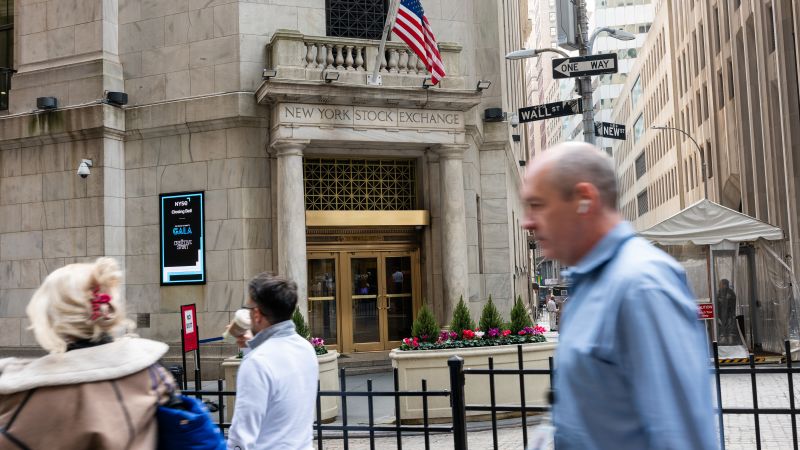
China's exports and imports in March fell well short of market forecasts, highlighting the challenges policymakers face in bolstering the country's economic recovery, with experts suggesting that more comprehensive and targeted policy stimulus will be needed for China to meet its ambitious growth target.

Hyderabad has been ranked among the top 10 fastest-growing Indian cities, with its GDP projected to reach USD 201.4 billion by 2035, thanks to the rise of real estate investment trusts and substantial investments in the IT sector.

JPMorgan Chase beat expectations with its first-quarter revenue and earnings, but CEO Jamie Dimon warned about geopolitical threats and inflationary pressures that could impact the global economy.

Alaskans eligible for Permanent Fund Dividend payments will receive checks for $1,312 by April 18 if they have not already received them, as part of a program that has been distributing funds since 1982 to state residents who have lived in the state for a full calendar year and intend to remain residents indefinitely.

JPMorgan Chase CEO Jamie Dimon warns that chronic inflation, Federal Reserve policy, ongoing wars, and geopolitical tensions pose major threats to the U.S. economy.

JPMorgan Chase CEO Jamie Dimon warns that people should expect the unexpected in the face of a shadow over hopes for the Federal Reserve to cut interest rates, citing geopolitical conflicts, rising oil prices, and uncertainty surrounding U.S. fiscal spending and elections as factors that have kept him cautious about the economic outlook.
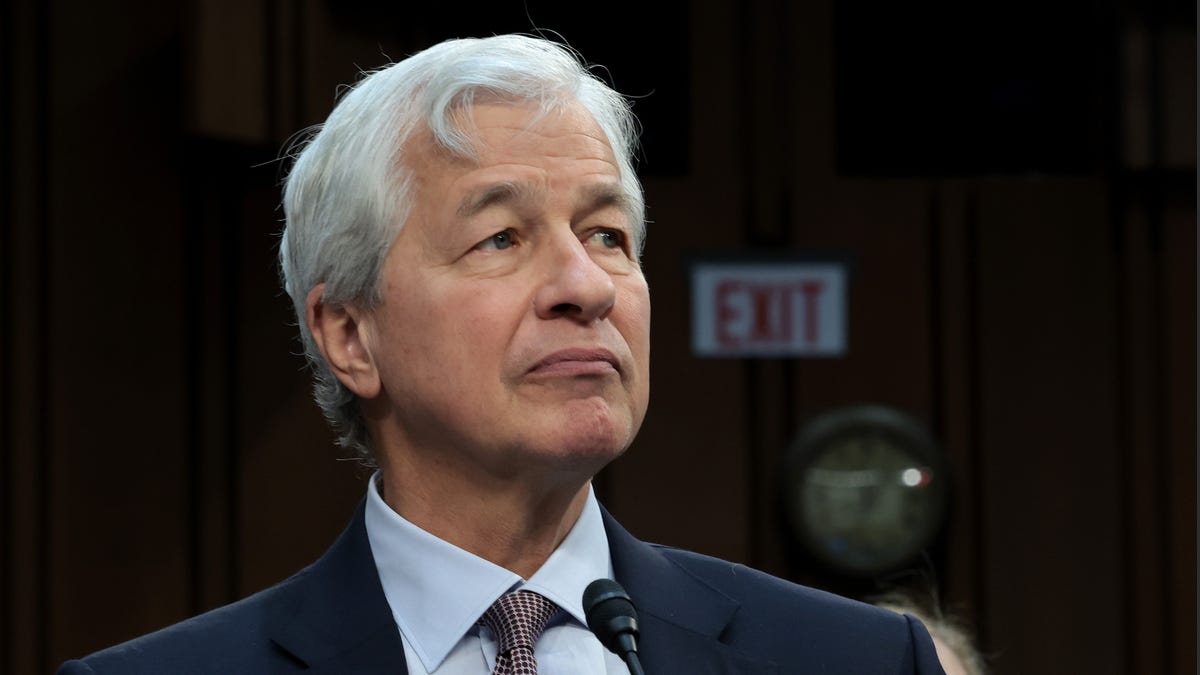
The Bank of England is planning to overhaul its forecasting process after being criticized for underestimating inflation, with former Federal Reserve chair Ben S. Bernanke leading a review and providing 12 recommendations for improvement.

The current state of polarization and dissatisfaction in the United States can be attributed to various factors, including economic discontent, a disconnect between personal satisfaction and the country's direction, unprocessed grief from the COVID-19 pandemic, and the ongoing influence and rhetoric of Donald Trump.
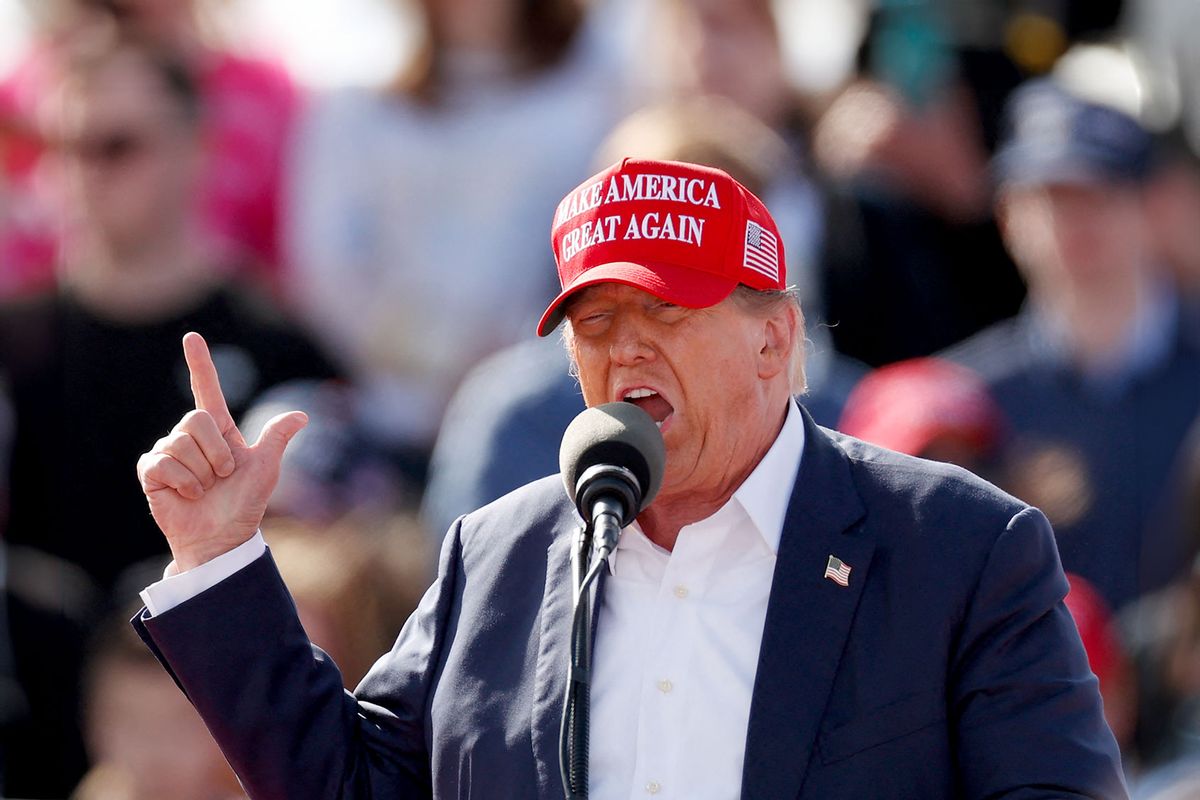
Credible offers tools and information to help improve your finances, including current mortgage rates, tips on comparing rates, and advice on qualifying for and applying for a mortgage.
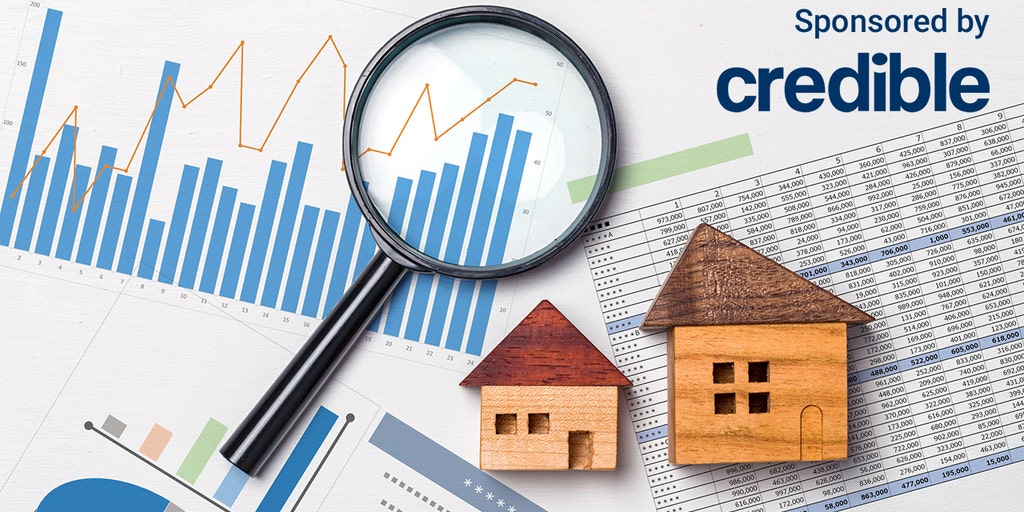
Seventy percent of older Americans are concerned about high inflation and rising prices outpacing their income, according to a recent survey by AARP.

The influx of immigrants, both legal and illegal, into the United States has contributed significantly to the country's economic growth and job creation, despite the Federal Reserve's efforts to combat inflation by raising interest rates. Immigrants have filled job vacancies and increased consumer spending, while also easing pressure on companies to raise wages and prices. However, the role of immigrants in the economy remains a contentious issue in the upcoming election, with President Donald Trump advocating for stricter immigration policies.

Surging auto insurance premiums, driven by factors like increased repair costs and supply chain disruptions, are contributing to high inflation and putting financial pressure on U.S. households.

JPMorgan Chase CEO Jamie Dimon warns of an "unsettling" global landscape and highlights concerns about war, rising geopolitical tensions, and inflation that could impact the economy and the performance of the bank, despite his previous gloomy predictions not aligning with the positive state of the financial markets.

The Bank of England's economic forecasting and communication have been heavily criticized, prompting a report by former US central bank head, Ben Bernanke, who recommends 12 reforms to address the issues and improve decision-making processes.

The middle class in America is facing a decline due to factors such as growing wealth inequality, a lack of affordable housing, rising costs of homeownership, and the struggles of full-time workers to make ends meet, requiring strategic financial management and systemic changes to address these issues effectively.

Rising college costs and sticker prices are receiving considerable attention, but the net price that students actually pay has stabilized or even fallen in recent years; however, this average net price only represents families with average finances, and the actual price of college for students with different economic circumstances has changed over time.

Federal Reserve Bank of Boston President Susan Collins expects a couple of interest rate cuts this year, citing the need for more time to bring inflation to targeted levels.
Germany's inflation rate dropped to 2.2% in March due to falling food and energy prices, impacting future decisions on interest rates by the European Central Bank.

Millions of new immigrant arrivals in the United States have played a key role in filling job vacancies and driving economic growth, helping to explain the strong job market despite aggressive interest rate hikes by the Federal Reserve to combat inflation, according to economists.
The Governor of the Bank of Korea, Rhee Chang-yong, has suggested the possibility of an interest rate cut later this year if inflationary pressure eases as expected, aligning with global policymakers in signaling a potential policy easing.

President Biden's hopes for easing inflation and guaranteeing interest-rate cuts ahead of the November election are proving to be more difficult than anticipated, leading to a recalibration of his messaging and expectations.

China's Canton Fair, the country's largest trade expo, is attracting foreign buyers looking for deals on Chinese goods, particularly in the "new three" industries of electric vehicles, batteries, and solar energy; however, concerns arise over China's dominant export power and the impact on global prices.

New Zealand's manufacturing industry has contracted for a 13th consecutive month, marking the longest period of decline since 2009 and reflecting soft demand and cost-cutting measures by manufacturers.

The possibility of multiple rate cuts from the Federal Reserve has diminished as strong inflation and economic reports have led rate traders to predict fewer rate cuts this year, with some economists even predicting zero rate decreases. However, JP Morgan CEO Jamie Dimon warns of potential inflationary factors that could result in interest rates ranging from 2% to 8% or more, while Harvard economist Larry Summers suggests that accelerating inflation could lead to a rate hike instead of a rate reduction.

Florida's economy is expected to outperform the rest of the nation through 2027, driven by a robust labor market and population growth, according to a forecast by UCF economist Sean Snaith. However, the state could face turbulence due to high consumer credit card debt and slower job growth in the coming years.

Emerging sectors, such as new energy and health services, are driving growth in China's economy, but traditional industries are skeptical if they can follow suit, with declining business revenue and a preference for cheaper cars being observed. However, industries like healthcare services remain optimistic about future growth. China's GDP growth target of 5% is seen as achievable but will require more policy support and investment from the private sector. The property market is expected to continue hindering economic growth, and the government must focus on promoting investment in new economy sectors to compensate for the shortfall in housing investment.
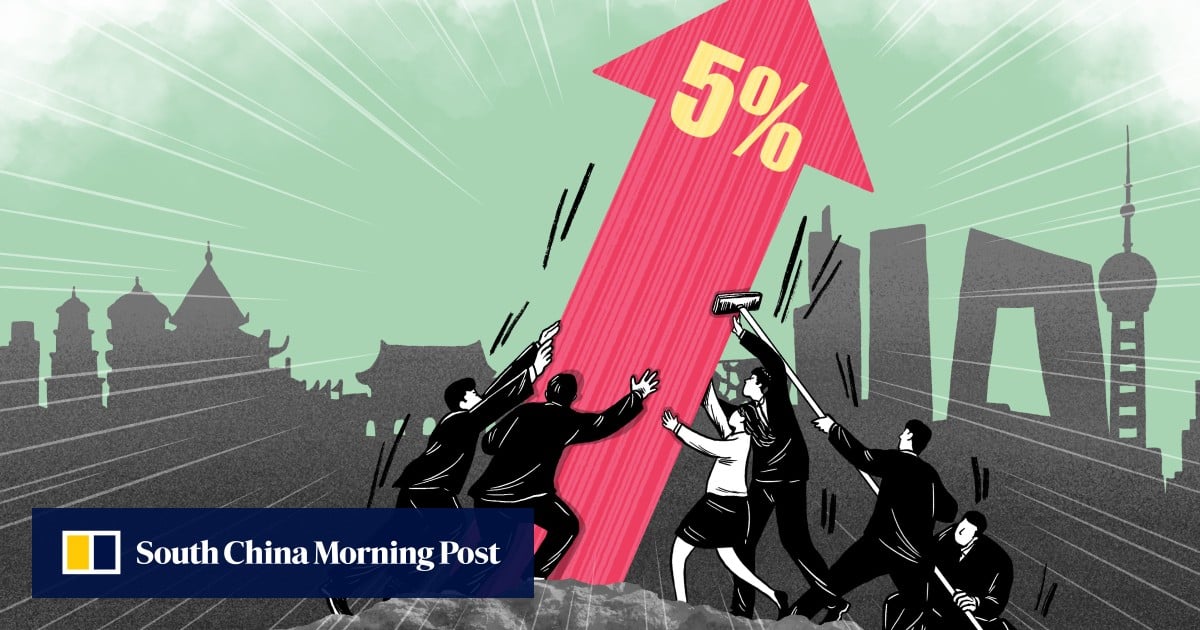
Florida is experiencing the fifth-highest inflation in the nation, affecting housing prices and forcing residents to budget differently, but economists expect inflation to recede within a year.

Despite media reports of a strong economy, inflation continues to persist at a rate above expectations, causing concerns over interest rates and the overall economic outlook, which could have negative implications for President Joe Biden's reelection efforts.

President Biden and White House officials are trying to address high inflation levels, with experts attributing it to the administration's spending agenda, including massive spending packages and increasing the national debt. Critics argue that the inflation is a result of excessive government spending, which is ultimately causing higher consumer prices.

Gen Z TikTok user Nic expressed frustration over the high cost of living in the US, despite making three times the federal minimum wage, and criticized both political parties for their inability to address the issue, highlighting the burden of inflation on low-income Americans.

Gas prices are expected to rise in the near term due to the peak driving season and the switch to more expensive summer gasoline, with the average national price for unleaded already at $3.63 per gallon, according to AAA data. The cost of gas was a key factor in the recent jump in inflation, and experts predict that gas prices will continue to drive inflation in the coming months. Geopolitical factors such as conflicts in Russia-Ukraine and Israel-Hamas are also contributing to higher oil prices. Defense Secretary Lloyd Austin has cautioned against further attacks on Russian oil refineries to prevent global energy market disruptions.

The Federal Reserve may have to cause a recession in order to reach its target inflation rate of 2%, according to a BMO strategist, as its current monetary policy is not restrictive enough. The recent inflation report has dashed hopes of a rate cut in June, with investors now eyeing September as a more likely time for easing.
The US Treasury official has called for coordinated action from the world's largest creditors, criticizing China's lending practices to emerging markets and emphasizing the need for financing access for low and middle-income countries without debt distress.
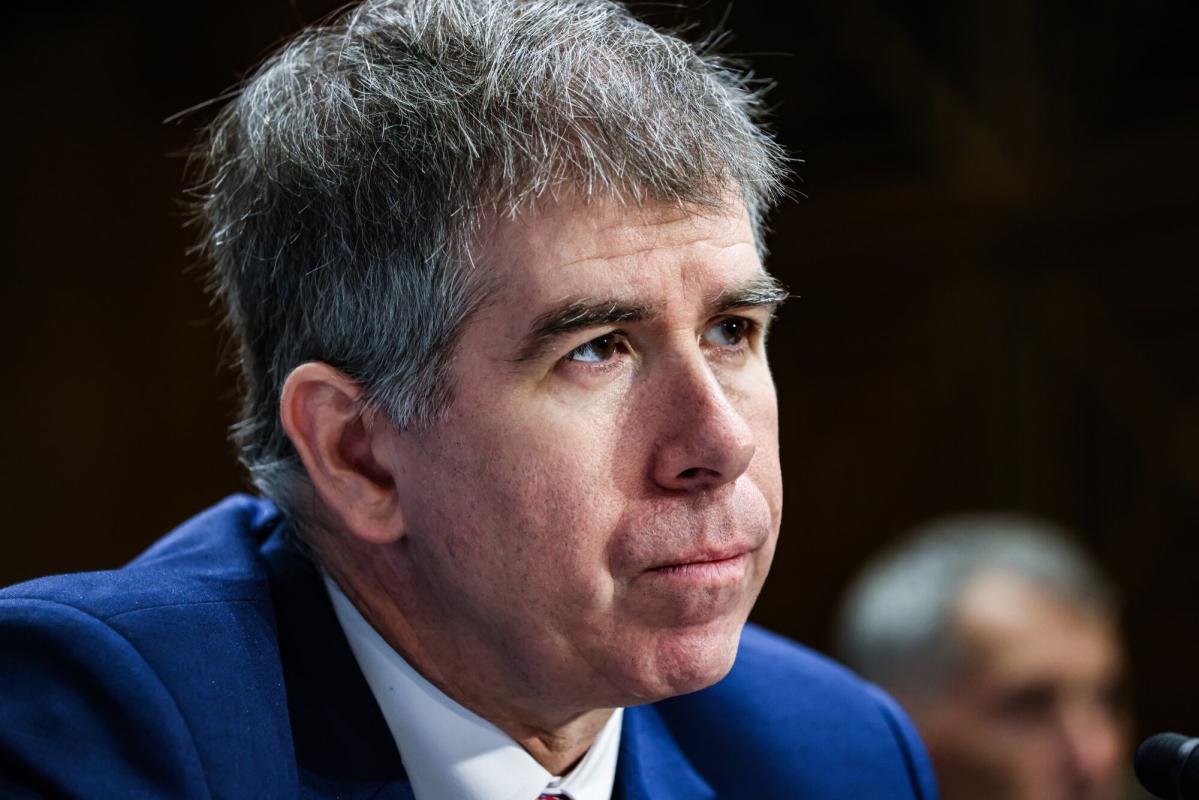
The stock and bond market may face near-term trouble due to higher-than-expected inflation and reduced expectations for rate cuts by the Federal Reserve, but there are reasons for investors to remain optimistic about the longer-term outlook, as strong economic fundamentals and earnings results can boost stocks and provide opportunities for fixed-income investors.
/cloudfront-us-east-1.images.arcpublishing.com/morningstar/UO27WVNBNFERJN2HBGETNU6OOA.png)
Consumer prices rose faster than expected in March, with inflation reaching 3.5%, giving the Federal Reserve more reason to delay reducing interest rates.

Strong economic activity in the United States and emerging markets is expected to drive global growth by about 3% this year, according to the International Monetary Fund, but this falls below the historic average and raises concerns about lackluster performances in the 2020s.
